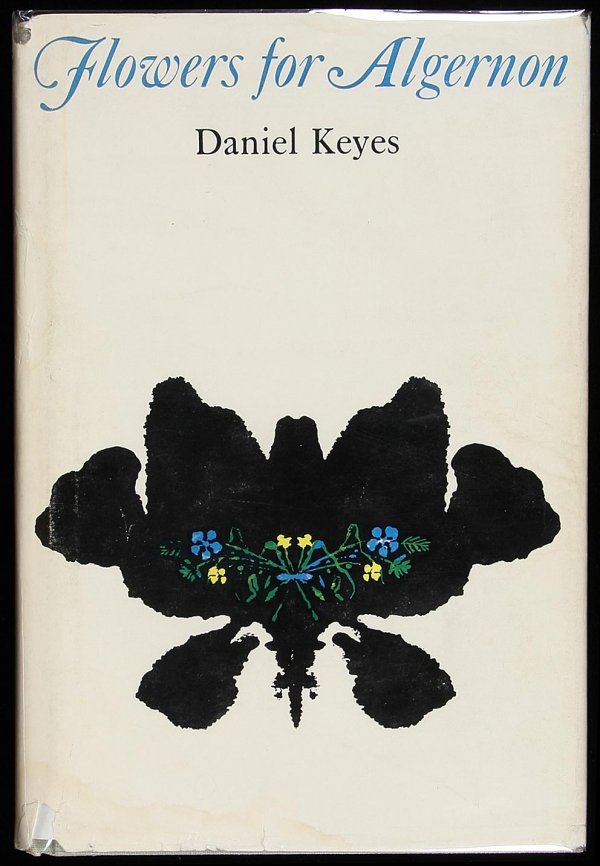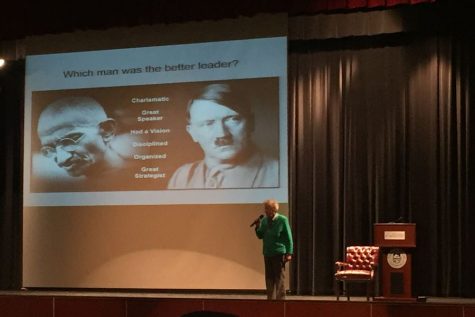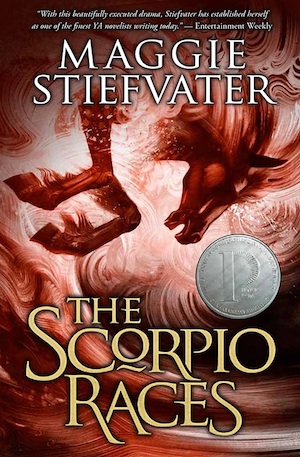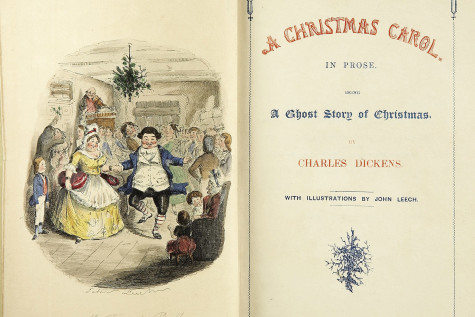Book Review: Flowers for Algernon
In Flowers for Algernon by Daniel Keyes, the protagonist Charlie Gordon is happy and healthy. He has a job he absolutely loves, cleaning and delivering baked goods, and his coworkers are his best friends. They laugh with him and keep an eye out for him. Only setback is, Charlie has a very low IQ level. He is 33 and can barely read and write despite weekly classes with Miss Kinnian at the Center for Retarded Adults. He forgets things on a daily bases. He hasn’t seen his family in seventeen years and is oblivious to the fact. Yet he is an extremely motivated, happy adult with a child’s brain. He tries to be smart but falls a bit short.
Meanwhile, scientists have made a stunning discovery. Using a test rat, Algernon, they were able to successfully increase his intelligence ten-fold. Now, imagine trying this operation on a human.
Charlie undergoes the procedure, which at least initially is considered a great success. However, the “new” Charlie soon begins to realize society has little in common with what the old Charlie experienced. His intelligence is so great, that the people he used to consider giants are now ant-like compared against the tremendous brain-power resting in his skull. But intellectualism is not as pleasing as he thought. In becoming a whiz-kid, he lost the very characteristic that drew people towards him. His friendly, talkative nature is outstripped by the new, wiser him. Charlie doesn’t trust anymore; he doesn’t make others laugh anymore. He has lost his vitality. His friends in the bakery sense the change and become scared of him. They feel that in accepting intelligence, Charlie has offended God. He loses the friendships that matter the most to him.
Then, Algernon, the original test subject, goes into decline. The rat develops erratic behavior: running into walls, biting, not eating. With his new-found intelligence, Charlie experiences a revelation- this will happen to him too.
Upset and angry, Charlie flees to New York with Algernon. Through much searching and bouts of mild depression, Charlie realizes that love is more rewarding than anything intelligence can provide. Love is an essential part of human existence. It matters more than anything else.
Charlie is on top of the world, but everything changes when Algernon dies. Charlie begins a quick downward spiral as he also loses his new found intellect. He loses coordination and his brilliance disappears with the days; Charlie’s temper shortens and his mood fluctuates until he is exactly like his earlier self. Going back to his job at the bakery, he lives out the rest of his days. He is happy now, friendlier, trusting; ironically, his co-workers begin to love and stick up for him again now that he is no longer a genius.
One of Flowers for Algernon’s main strengths lies in the excellence of portraying Charlie as a real character. However, the style, with misspelled words and terrible grammar, can be frustrating to read sometimes. Occasionally, sections must be read and re-read to establish understanding. “P.S. please if you get a chanse put some flowrs on Algernons grave in the bak yard.” In that example, the misspellings take away from the importance of the sentence. The fluctuating adds to the understanding of Charlie, but is a hindrance to the reader.
Another major strength of this book is the clarity and relatability of its themes- love and friendship matter more than brain-power. The central theme that places value on love was refreshing. This book brings attention to the insaneness of the ideals we value as a society.
The central theme that places value on love was refreshing. This book brings attention to the insaneness of the ideals we value as a society
Undeniably, Flowers for Algernon has excellent characterization: You know Charlie extremely well- but the novel has issues making him relatable. His moodiness and fits of temper draw focus away from the principles of love, laughter, and friendship. The sharp contrast of emotions up until the end, even after he learns to love and the futility of playing God derives attention away from important life lessons. High IQs do not make people accept you, if anything they reject those smarter than themselves.
Another strength of Daniel Keyes’ work is the last chapter. It it a perfect example of Charlie’s character and a push to be kinder to people and animals in this world. Not to mention, Keyes skill in tying up all loose ends is incredible, so the reader is not left dangling on the edge of a sheer cliff.
Overall, Flowers for Algernon is a well written book with excellent themes. However, it sometimes does a poor job of representing those themes.

Hello, I’m Rachel Robison. I’m a sophomore at Tyrone. This is my first time writing anything for the Eagle Eye. As you can tell from what I write,...













